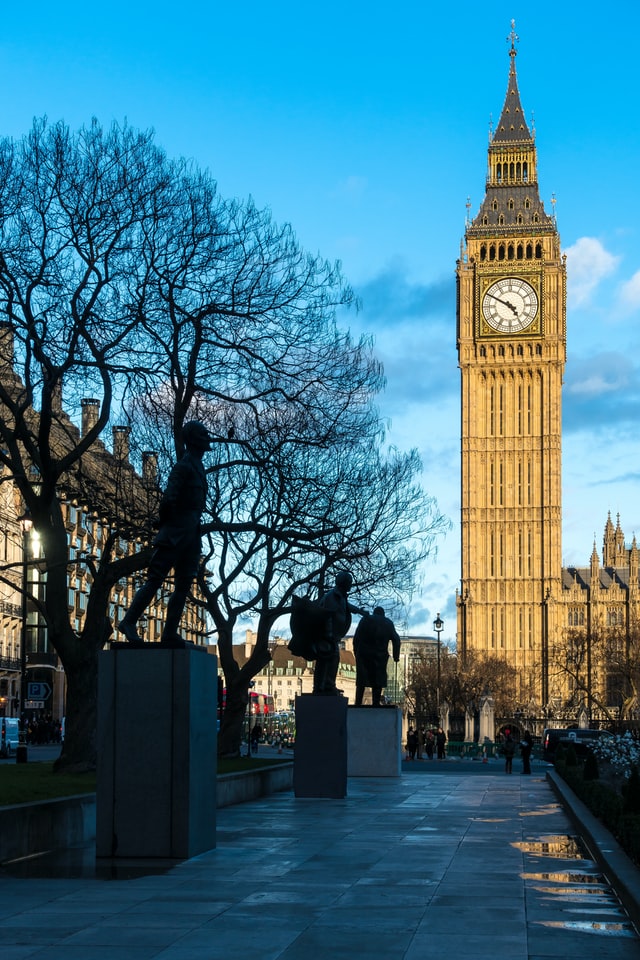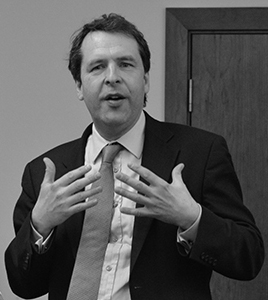Philip Booth: Taking and Returning Liberties

JP Taylor wrote in his Oxford History of England:
“Until August 1914 a sensible, law-abiding Englishman could pass through life and hardly notice the existence of the state beyond the post office and the policeman…He could travel abroad or leave his country forever without a passport or any sort of official permission. He could exchange his money without restriction or limit. He could buy goods from any country in the world on the same terms as he bought goods at home. For that matter a foreigner could spend his life in the country without permit and without informing the police…All this was changed by the impact of the Great War…The state established a hold over its citizens which though relaxed in peace time, was never to be removed and which the Second World War was again to increase. The history of the English people and the English State merged for the first time.”
How things have changed.
As Taylor notes, freedoms are often eroded in wartime. Does covid 19 justify the same kinds of erosion of freedom?
If you think about these issues from the perspective of an economist you end up in roughly the same place as that to which the standard account of Catholic social teaching would take you. The language and thought process would be different, of course.
Let’s start with the economics. The classic public health case for intervention arises from the fact that the benefits of public health interventions are, in the jargon, non-excludable and not diminished in consumption. You therefore cannot easily charge for those benefits. If I have a vaccination for an infectious disease, this benefits large numbers of people other than me. Given this, we might want to use policy measures to encourage actions that have public health benefits.
In a free society the chosen intervention would normally involve taxing the general population to provide the intervention, such as a vaccination programme, for free. An out and out libertarian might object to this, but most economists and most people who broadly support a market economy would support such an intervention.
If you approached this problem from the perspective of Catholic social teaching, you might reason as follows. Broadly, families should have responsibility for making choices in relation to health and healthcare. Other institutions in society would, in various ways, support families in those choices. However, if the common good of society as a whole is under attack, the government may intervene just as it would intervene by raising an army or, occasionally, through conscription when society was under attack by a hostile power. Normally, we allow families the maximum freedom but, sometimes (only rarely), we have to suppress that freedom for the greater good of the protection of society as a whole. Catholic social teaching would think about this in a less utilitarian way than standard economics, but you end up in a similar place.
Just as we sometimes have to put people’s lives at risk or even conscript armies in wartime, sometimes Catholic social teaching would accept quite draconian measures if the survival of society were at stake. We might have to accept isolation for people with infectious diseases and possible separation from their families or even a lockdown. It is rarely desirable to stop people working to support their families but it might be justified if there were a legitimate fear that people may not be able to live without unacceptable fear of death or serious ill health.
But, what about track and trace?
A track and trace system requires us to go through certain procedures and give information to private companies and the government if we partake in certain activities. Again, this may be a proportionate and appropriate intervention for the protection of the common good. We might be concerned that the poor and those who do not have access to adequate technology might be excluded from participating in wider society in a track and trace system. The virtue of solidarity would warn us that we should take steps to avoid this.
Given what we know about humanity, we might be wary of such schemes in practice. Human persons can use their reason to behave and respond to the conditions that face us in all sorts of ways that might be difficult to predict and monitor using track and trace schemes. As Adam Smith put it in The Theory of Modern Sentiments:
“The man of system…is apt to be very wise in his own conceit; and is often so enamoured with the supposed beauty of his own ideal plan of government, that he cannot suffer the smallest deviation from any part of it…He seems to imagine that he can arrange the different members of a great society with as much ease as the hand arranges the different pieces upon a chess-board. He does not consider that in the great chess-board of human society, every single piece has a principle of motion of its own, altogether different from that which the legislature might choose to impress upon it.”
When considering all interventions, we should bear in mind that, although the common good, requires that all persons have access to basic healthcare and are not put at unacceptable risk of death, it also requires that we are able to have dignified work, social relationships and education too. So, when we see what seems to be policy chaos around us with division of opinion within and between the government, parliamentarians, the civil service and scientists, perhaps we should be sympathetic. Although any one of us might have very firm opinions about what government should be doing in this pandemic, a wide variety of different opinions can easily be derived from same basic ethical stance. In addition, as the quotation from Adam Smith suggests, the practical consequences of an intervention can be impossible to evaluate with any certainty.
However, we can say with certainty that interventions that are put in place in emergencies should be brought to an end at the soonest possible moment. This tends not to happen when liberties are taken away in war time. Those on the left might be relaxed about the moves towards economic socialism after each world war. However, experience has also shown that “emergencies” have led to the erosion of civil liberties that those on the left tend to value – the aftermath of 9/11 being one good example. So we should not be complacent. As the Compendium of the Social Doctrine of the Church puts it: ‘state action in the economic sphere should also be withdrawn when the special circumstances that necessitate it end’.
This article was first published on the Catholic Social Thought blog.

Philip Booth is Senior Academic Fellow at the Institute of Economic Affairs and Professor of Finance, Public Policy and Ethics at St. Mary’s University, Twickenham. He also holds the position of (interim) Director of Catholic Mission at St. Mary’s having previously been Director of Research and Public Engagement. He is a Senior Research Fellow in the Centre for Federal Studies at the University of Kent and Adjunct Professor in the School of Law, University of Notre Dame, Australia. He is also an Associate Fellow with the Centre for Enterprise, Markets and Ethics (CEME).
